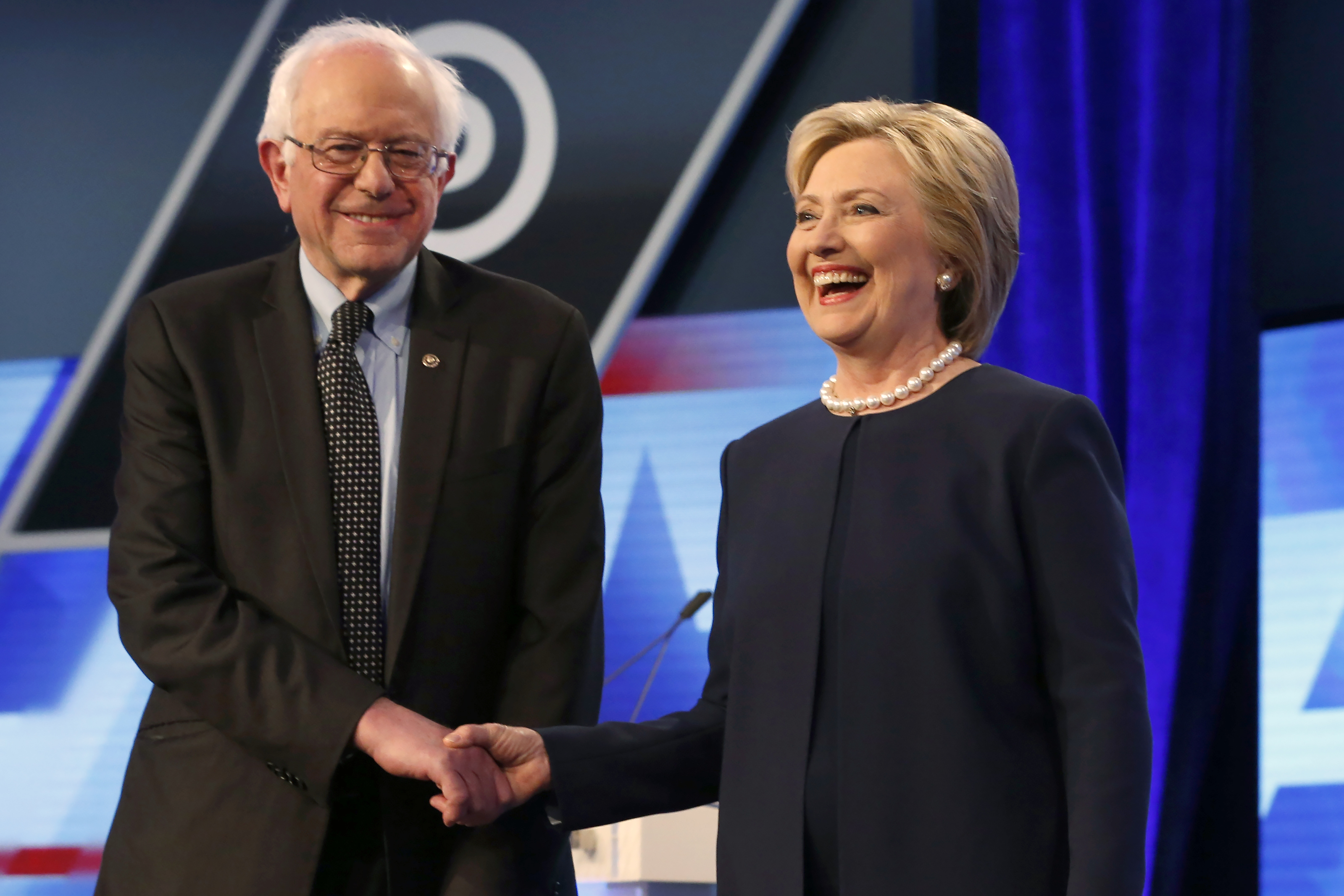For the past couple of weeks, I’ve been wrestling with the question of how to deal with the reality that Hillary Clinton—and not Bernie Sanders—is going to be the Democratic candidate for president.
My basic conflict boils down to one question: can I be considered a true believer in the revolution Sanders is calling for and, at the same time, vote for a candidate who so clearly represents the status quo?
The answer to this question, for me, is a conditional yes.
But before I set out my reasoning, let me issue a simple request to all Hillary Clinton supporters.
Please stop treating us Bernie folks as if we were all zealots or starry-eyed children or (worst of all) sexist “bros” who are somehow holding Hillary back from her appointed slot at the top of the ticket.
Is it true that there are some partisans whose passion for their candidate has devolved into dogma and invective?
Absolutely.
But it’s also true that there are a boatload of Hillary supporters who refuse to confront her weaknesses as a candidate—the moral elasticity that led her to vote to authorize the war in Iraq, for example, and to accept huge fees for speeches given to Wall Street bankers, along with campaign donations.
The larger question here is what Sanders supporters should do now. What I recommend is quite simple. In fact, it’s what Sanders himself is now advocating: keep fighting for every possible delegate. Keep turning out for rallies and knocking on doors and giving money.
But do so with the awareness that the ultimate goal isn’t to elect Sanders but to force the Democratic Party to adopt a more progressive agenda.
The best way to do this is to depersonalize the conflict. It’s not about Hillary versus Bernie. Heck, it’s not about any one candidate. It’s about whether the progressive wing of the Democratic Party can wrest control of that party from the centrists, or at the very least exert real political force on them.
There is, of course, a recent precedent here. As odious as the Tea Party movement was, with its astroturf campaigns and its tenor of incoherent grievance, it managed to transform the Republican Party.
The current GOP strategy—which is best characterized as break government on behalf of the corporations—is the direct result of pressure applied by leaders brought to power by the Tea Party.
The support Sanders has rallied in 2016 reflects a kind of idealistic echo to the Tea Party’s nihilistic obstructionism. The basic idea is to create a government that is more responsive and compassionate.
The broad goals of this movement include getting private money out of politics, redressing the obscene inequality in wealth and opportunity, and confronting the looming horrors of climate change. Each of these goals encompasses specific policy proposals: campaign finance reform, hiking taxes and eliminating loopholes for the super-wealthy, raising the minimum wage, implementing a carbon tax, reallocating money from prisons to early education, and so on.
These ideas are hardly revolutionary. They represent common sense responses to the cruel and dangerous excesses of capitalism.
But they only become real legislative possibilities if progressives can foment the political revolution that Sanders speaks of so frequently.
And that means uniting a diverse coalition of citizens around the long-term aims of this revolution, not one candidate or one election.
We need to start thinking more broadly about how to make sure our thwarted passion for reform doesn’t curdle into cynicism and inaction.
After all, we’ve seen what that looks like.
Following the election of Barack Obama in 2008, progressives took the 2010 election off and the result was a seismic shift to the right. And not just at the federal level, where Tea Party candidates swept into Congress, but at the state level, where conservative lawmakers redrew district lines to ensure a Republican majority in the House for years to come.
As Sanders supporters, we need to decide which policy goals feel most crucial to us. For me, the key to the whole shebang is campaign finance reform. It’s the only way to stem the tide of corporate propaganda that has polluted our political discourse, and to insure each election function as an honest contest of ideas.
But whatever our priorities, the time has come to stop focusing on Clinton as corrupt and start focusing on how best to keep her honest.
The animus directed at Clinton and her supporters—the righteous declarations of Bernie or Bust—may be emotionally satisfying. But they don’t advance the causes that Sanders champions.
In fact, they feed directly into the slimy campaign of insinuation that Trump and his surrogates will launch at Clinton, specifically because they don’t want to talk about the issues.
The necessary conversations we should be having right now are about the specific contents of the Democratic Platform. Should Democrats be the party advocating for campaign finance reform? For a minimum wage of $15? For a tax code that asks CEOs to pay their fair share?
These are the questions we should be posing to Clinton supporters. My own sense is that most of them agree with this agenda, especially if it’s uncoupled from specific candidates.
Hell, let me take that a step further: most Americans agree with the progressive agenda if you present it as a set of discrete policy goals.
To be clear: nobody in a democracy can tell you what to do with your franchise. Your vote is yours to spend as you see fit. If Clinton attempts to tack back towards the center during the general election—if she turns away from policy goals you hold sacred—you have every right to withhold your vote, or your enthusiastic support.
But the larger challenge for us Sanders supporters is pivot from a singular campaign to a sustainable movement, with clearly defined policy goals, candidates ready for the next cycle, and an army of volunteers and small donors who see Bernie as a first step not the last hope.

